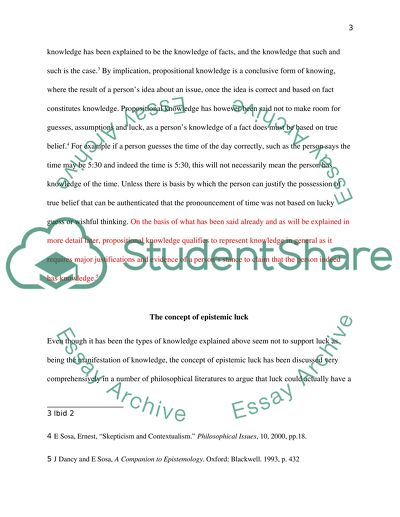Cite this document
(The Possibility of Someone Knowing Something Merely Based on Luck Essay Example | Topics and Well Written Essays - 2500 words, n.d.)
The Possibility of Someone Knowing Something Merely Based on Luck Essay Example | Topics and Well Written Essays - 2500 words. https://studentshare.org/philosophy/1684912-the-possibility-of-someone-knowing-something-merely-based-on-luck
The Possibility of Someone Knowing Something Merely Based on Luck Essay Example | Topics and Well Written Essays - 2500 words. https://studentshare.org/philosophy/1684912-the-possibility-of-someone-knowing-something-merely-based-on-luck
(The Possibility of Someone Knowing Something Merely Based on Luck Essay Example | Topics and Well Written Essays - 2500 Words)
The Possibility of Someone Knowing Something Merely Based on Luck Essay Example | Topics and Well Written Essays - 2500 Words. https://studentshare.org/philosophy/1684912-the-possibility-of-someone-knowing-something-merely-based-on-luck.
The Possibility of Someone Knowing Something Merely Based on Luck Essay Example | Topics and Well Written Essays - 2500 Words. https://studentshare.org/philosophy/1684912-the-possibility-of-someone-knowing-something-merely-based-on-luck.
“The Possibility of Someone Knowing Something Merely Based on Luck Essay Example | Topics and Well Written Essays - 2500 Words”. https://studentshare.org/philosophy/1684912-the-possibility-of-someone-knowing-something-merely-based-on-luck.


